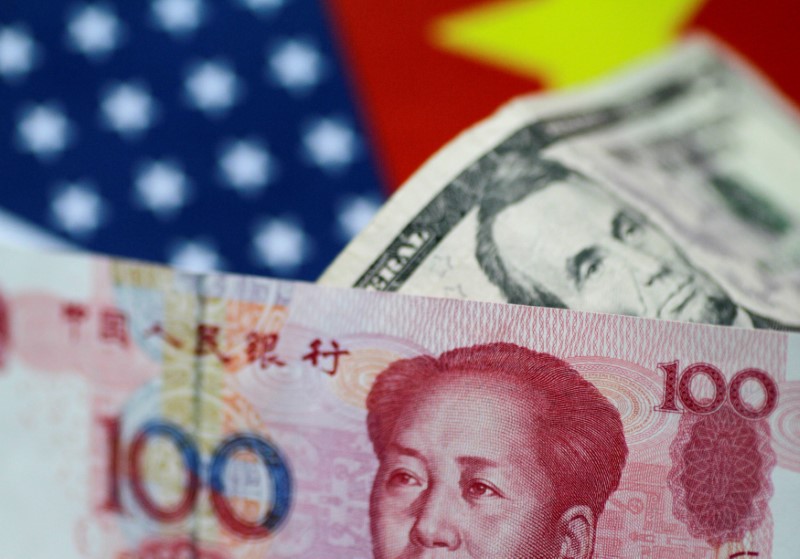Investing.com– Most Asian currencies moved within a narrow range Monday (NASDAQ:) while traders were little pleased with higher budget spending in China, while the dollar remained steadier this week than key consumer inflation data.
Regional currencies suffered steep losses in recent sessions as the dollar strengthened sharply after Donald Trump won the 2024 presidential election. Although the dollar’s rally was slowed by a rate cut by the Federal Reserve, it still retained much of its recent gains.
The Japanese yen and Chinese yuan were among the hardest hit by this trade, while broader Asian currencies also largely retreated.
The and both rose slightly in Asian trading, with focus shifting to October figures due later in the week. A slew of Federal Reserve officials will also speak this week, after the bank cut rates by 25 basis points last week.
The Chinese yuan is weakening as stimulus measures leave much to be desired
The Chinese yuan pair rose 0.1%, holding near a three-month high, after China’s National People’s Congress outlined plans for more budget spending.
The NPC last week approved a 10 trillion ($1.4 trillion) debt package aimed at easing local governments’ debt burdens. But the measure disappointed investors who were hoping for more targeted fiscal measures.
Beijing indicated that more stimulus measures were on the way, but did not specify the timing of the planned measures. Analysts at ANZ said China would likely withhold stimulus measures until it was clear what US policy would be towards the country after Trump took over the presidency.
Trump has promised to impose steep import duties on China, which does not bode well for the economy, which is already struggling with slowing growth.
Data released over the weekend showed China’s economy slowed in October as it shrank for the 25th month in a row.
ANZ analysts said they are now looking to high-level Chinese political meetings in December for further insight into stimulus measures. The markets are looking forward to measures aimed at stimulating private consumption and the crisis in the real estate market.
The Japanese yen weakens on uncertainty about the BOJ
The Japanese yen weakened on Monday, with the pair rising 0.5% and staying close to recent three-month highs.
The summary of views from the Bank of Japan’s October meeting showed that policymakers were divided on more rate hikes, leading to more uncertainty about when the BOJ will raise rates further.
The uncertainty bodes ill for the yen, which has already been battered by increased political uncertainty in Japan after the country’s ruling Liberal Democratic Party lost its parliamentary majority last month.
Broader Asian currencies stayed within a tight range after recent losses against a strong dollar.
The South Korean won pair rose slightly, while the Singapore dollar pair rose 0.2%.
The Australian dollar pair added 0.2%, while the Indian rupee pair remained near record highs around 84.4 rupees.


